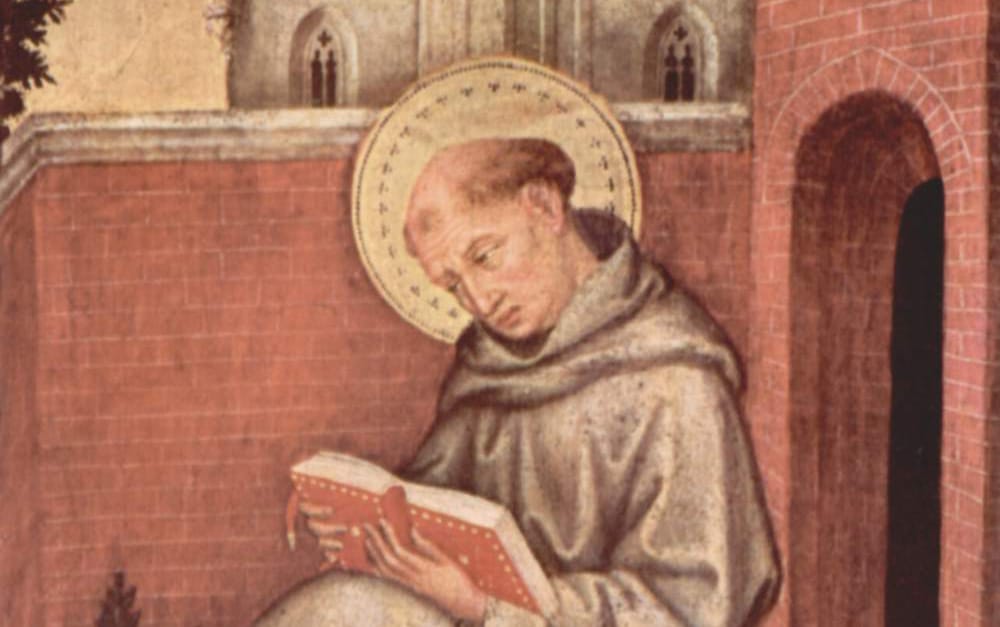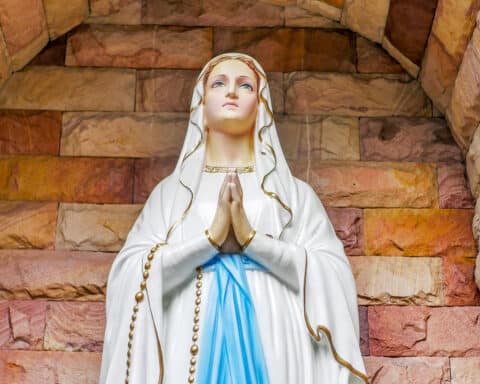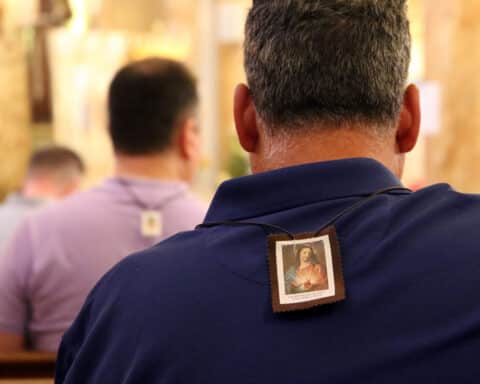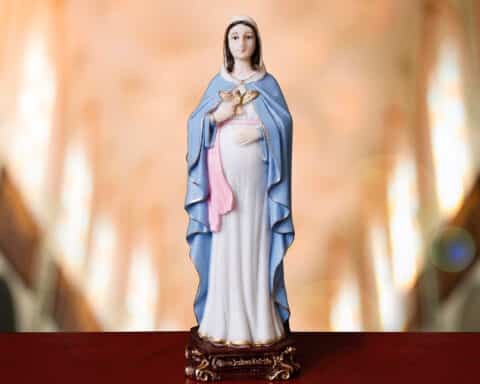
— Dick Jones, Des Moines, Iowa
Answer: It is not accurate to say that St. Thomas denied the Immaculate Conception. It was in terms of the exact moment of her sanctification in the womb that St. Thomas pondered. Perhaps she did have original sin and was cleansed of it in the womb after her conception but prior to her birth. Whatever the precise point of her sanctification, he certainly held that Mary was sanctified in the womb and was sinless in her sojourn on this earth.
Even as to Mary being immaculately conceived (i.e. never touched by original sin), St. Thomas went through three different stages in his thought. Dominican Father Garrigou-Lagrange describes these stages as follows:
In stage one, 1253-54, he affirmed the Immaculate Conception of Mary, stating: “Such was the purity of the Blessed Virgin Mary, who was exempt from both original and actual sin” (Commentary on the Sentences I, d. 44, q. 1, a. 3, ad 3).
In stage two, 1254-72, St. Thomas taught against the Immaculate Conception of Mary: “If the soul of the Blessed Virgin had never incurred the stain of original sin, this would be derogatory to the dignity of Christ, by reason of His being the universal Savior of all. … [So] the Blessed Virgin did indeed contract original sin, but was cleansed therefrom before her birth from the womb” (Summa Theologiae III, q. 27, a. 2 ad. 2).
In stage three, 1272-73, he returned to belief in the Immaculate Conception of Mary: “For she [the Blessed Virgin] was most pure because she incurred the stain neither of original sin nor of mortal sin nor of venial sin” (Expositio super salutatione angelica).
Hence St. Thomas’ position in the Immaculate Conception should not be simplified, and he ends his life attesting that she was not touched by original sin.
As to the concern that so great a mind could err on this topic, remember that the Immaculate Conception of Mary was not a defined dogma at the time. St. Thomas was thus freer to speculate on this matter and obviously did. As we can see, his speculations were wide ranging and encompassed both views at different times. This need not be a problem; as a man of faith he pondered a truth not yet fully defined. Brilliant though he was, he was not omniscient, and he is not the Magisterium, which has since assured us that Mary was not touched by original sin.
Father and Son
Question: Jesus says, “The Father is greater than I” (Jn 14:28), but we say in the creed at Mass that Jesus and the Father are consubstantial.
— Paul VanHoudt, Erie, Colorado
Answer: Jesus refers to his humanity in the passage you cite, not his divinity. In the Athanasian Creed, this is clarified. Jesus is “equal to the Father according to his divinity, and inferior to the Father according to his humanity.” Your question reminds us that it is important when listening to Jesus to understand the mode in which he speaks. There is a similar need when interpreting the passage where Jesus says no one knows the Day of Judgement, not even the Son, only the Father (Mk 13:32). As God the Son he surely knows, but as man he can say he does not know.





